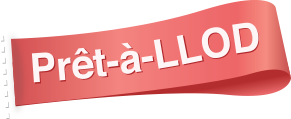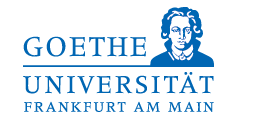Call for Papers
The LDL workshop series invites presentations of algorithms, methodologies, experiments, tools, use cases, descriptions of ongoing or planned research projects as well as position papers regarding the creation, support, publication or application of linguistic data collections and their linking with other resources. Descriptions of such data, and in particular, its uses in research (linguistics, lexicology, DH) and technology (natural language processing, lexicography, localization) are also welcome.
Additionally, the 10th anniversary edition of LDL will specifically welcome contributions and position papers that reflect on the impact, prospects, requirements or challenges encountered with the application of LLOD technology to research problems and industrial applications in the past decade. This includes experiences in the development, usage or limitations of existing and emerging standards as well as the application and adaptation of vocabularies for novel applications and domains, as well as contributions that look towards the future of LLOD technologies and applications for academic and industrial research.
Topics of Interest
We invite contributions focusing on, but not restricted to the following aspects of creating and managing Linked LRs:
- Infrastructure for building & managing linked LRs
- Vocabularies, standards and best practices
- Tools for creating and curating LL(O)D resources
- Approaches for creating linked LRs
- LLOD technology and methodology
- Methodologies for linked language resource development
- Leveraging knowledge graphs and machine learning
- Linking resources across languages and domains
- LLOD applications in different communities of practice, e.g., using
- LLOD to facilitate NLP and language technology applications,
- LLOD for quantitative and qualitative linguistic research,
- LLOD for lexicography, philologies and other branches of the humanities
-
Future directions and critical reflection
- Bringing LLOD to the end user: Building and using the technical ecosystem
- Ethical, legal, social and scientific aspects of Linguistic Linked Open Data
- Achieving FAIRness for language resources and NLP tools
- Projects in their early stages that seek advice from the broader LLOD community are very welcome, especially if addressing fields still underrepresented in the LLOD cloud, such as the study of low resource languages or matters of multimodality.
The submission guidelines are the same as for the main LREC conference: https://lrec2022.lrec-conf.org/en/submission2022/
- Submission page: https://www.softconf.com/lrec2022/LDL/
- Submission deadline:
April 8, 2022April 15, 2022 - May 3, 2022: notification
- May 23, 2022: camera-ready
- June 24, 2022: workshop, Marseille (France)
Identify, Describe and Share your LRs !
Describing your LRs in the LRE Map is now a normal practice in the submission procedure of LREC. To continue the efforts initiated at LREC 2020 about “Sharing LRs” (data, tools, web-services, etc.), authors will have the possibility, when submitting a paper, to upload LRs in a special LREC repository. This effort of sharing LRs, linked to the LRE Map for their description, may become a new regular feature for conferences in our field, thus contributing to creating a common repository where everyone can deposit and share data.
As scientific work requires accurate citations of referenced work so as to allow the community to understand the whole context and also replicate the experiments conducted by other researchers, LREC 2022 endorses the need to uniquely Identify LRs through the use of the International Standard Language Resource Number (ISLRN, www.islrn.org), a Persistent Unique Identifier to be assigned to each Language Resource. The assignment of ISLRNs to LRs cited in LREC papers will be offered at submission time.






